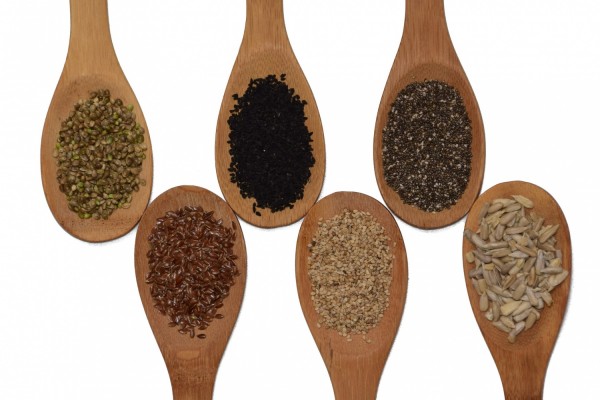Healthy Seeds You Should Incorporate in Your Diet
According to Healthline, seeds are extremely nutritious. They contain healthy vitamins, minerals, antioxidants, and fats and help reduce blood sugar, cholesterol, and blood pressure.
Onhealth described seeds as extremely versatile and can be incorporated into different dishes that you eat depending on your diet.
If you are serious about losing weight and improving your health, then keep on reading. Chomping seeds might work for your love handles and boost your health.

ALSO READ: So Everybody's Putting Chia Seeds in Water, Here's Why
Flax Seed
Recognized by Your Health Tube as one of the luxurious seed, flax seeds can also be called linseeds. Aside from being rich in Omega-3 fatty acids they help in improving the digestion process, give healthy hair and skin, promote weight loss, reduce cholesterol levels, balance hormones that can be very beneficial to women during their menopause.
One amazing trait of this seed is, according to MD Anderson Cancer Center, studies show that 25 grams of flaxseed a day may reduce tumor growth in the breast and prostate.
Pumpkin Seed
Pumpkin seeds are small, but they possess numerous valuable nutrients.
Also known as pepita (Mexican Spanish term), pumpkin seeds contain antioxidants and a decent amount of polyunsaturated fatty acids, folate, vitamin B2, and potassium.
According to Healthline, this seed may help relieve the symptom of benign prostatic hyperplasia, a condition in which prostate glands enlarge and have problems with urination.
Healthline emphasized the seed's high content of magnesium, which is important for controlling blood pressure, reducing the risk of heart disease, maintaining and forming healthy bones, and regulating blood sugar levels.
Sesame Seeds
Popular as a topping to your favorite dessert, bread, and side dishes, according to Harvard Medical School, these nutty, sweet-flavored seeds contain lignans and phytosterols, plant compounds that can lower cholesterol levels.
Harvard highlights it as a decent source of calcium and magnesium, minerals needed by the body in forming bones and blood pressure control.
READ ALSO: Whole Wheat or Whole Grain? Which Is the Better Choice, According To Experts
Chia Seeds
Healthline said that these seeds have 10 grams of fiber every 2 tablespoons. They also contain proteins, omega-3 fatty acids, antioxidants, and a bunch of minerals like iron, calcium, magnesium, and zinc.
According to Your Health Tube, chia seeds are used by Aztecs, Incas, and Mayans. They help prevent premature skin aging, regulate cholesterol levels, boost energy and metabolism, improve digestive health and dental health, maintain bone mass and strength, good in building muscle, and promote weight loss.
Quinoa
According to Man of Many, quinoas are referred to as the mother of grains by the Inca. Quinoas are rich in Amino Acids, Fiber, Iron, and Lysine. It also has a low glycemic index that provides you lower lasting energy over a sustained period. Quinoas are also rich in magnesium, Flavonoids that can help you lose weight.
Sunflower Seeds
According to Healthline Sunflower seeds can be associated with reduced total inflammation in older people. Healthline added that in a study where eating nuts and sunflower seeds affect cholesterol levels, sunflower seed diet reduced triglycerides in the blood more than consuming almonds.
Incorporating these seeds into your diet may help you improve your health. Numerous recipes online include these nutritious seeds so try to incorporate them in your daily meal.
READ NEXT: Teen's Junk Food Diet Caused Him to Go Blind, Doctors Say
Check out more news and information on Diet Trends on MD News Daily.
Oct 26, 2020 11:00 AM EDT





